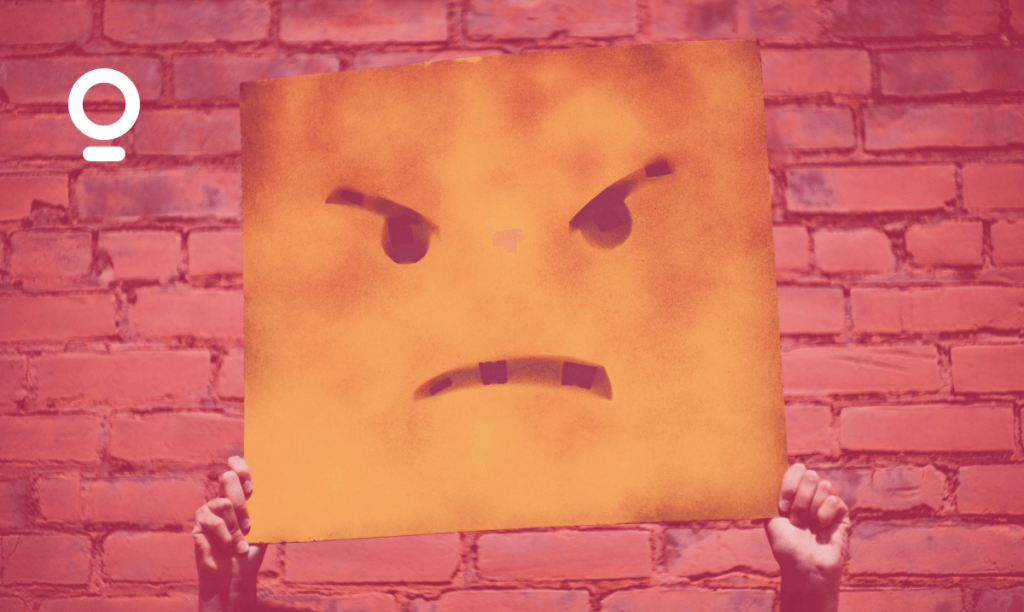By Rowan Clifford
Author of Airbn’b’Smart and Hospitable user
Have you ever had one of those guests that just keep nit-picking at everything?
You know the ones, they scrutinize every little detail of your place from top to bottom, and nothing you can do is ever enough.
If you answered yes, then you’re not alone.
These are the types of guests that’ll go out of their way to leave you a bad review; in fact, they’ll probably relish the opportunity.
But, does that mean you’ve just got to suck it up and take it on the chin?
Or, is there something you can do about it?
Well, in truth, it’s a little from column A and a little from column B.
Unfortunately, there’s no foolproof way to avoid bad Airbnb reviews, but there is a way to mitigate the damage (more on that in a minute).
In this article, I’m going to give you a few tips and tricks for neutralizing potential bad Airbnb guest reviews to keep your reputation intact.
Setting the scene
A booking comes through, and the questions start immediately:
- “Can I check-in early?”
- “Can I have a late check-out?”
- “Where can I park my car?”
- “Can I leave my luggage in the house after I check-out?”
There’s obviously nothing wrong with these questions—they’re quite normal actually—but you can just tell from the tone of voice in the messages that this particular guest is going to be hard work.
They arrive at your property, and the nit-picking begins…
“There’s a hair in the shower. A stain on a cushion. Lipstick on a wine glass. There’s dust on a window-sill. Where’s the bottle opener? The WiFi is slow!”.
It’s just one thing after another. Nothing you can do is enough.
These are the types of guests that will leave you a bad review, regardless of everything that you’ve done to try to make their stay as good as possible.
So, in these circumstances, what should you do?
Start with making sure you haven’t made any of the popular hosting mistakes. We compiled a list for you that you can download here. If you ticked any of those boxes, make sure to address those issues the earlier the better.
Now let’s have a look at your options to resolve the conflict.
Can you remove a review from your page on Airbnb?
You can’t actually “hide” a bad review. The only way to remove it is to prove Airbnb that the guest violated their content policy. For example, such actions of your guest as demanding something for a good review or revealing the exact location of the listing are the grounds for review removal.
If the review is abusive or completely unfair, you should definitely report it to Airbnb. In this way, you can save other potential hosts the trouble of having a bad guest in the future.
What to do if you get a bad review on Airbnb
Option 1. The Refund Route

You can probably sense it from the tone in their messages that what these types of guests are really after is a refund. But, is giving them a refund the right thing to do?
Now, there’s no right or wrong answer to this one, but here’s how I manage this personally.
If what the guest is complaining about is a genuine complaint (I’m talking about something that genuinely influences the quality of their stay), then I will offer a form of refund.
Depending on the severity of the issue, I take two different paths.
Full refund
If something major happens, and it’s had a massive impact on their trip, and there’s nothing I can do in the short time to rectify it, I’ll give a full refund as standard. I’d rather not take the money in these instances.
Partial refund
If something non-major, but still genuine occurs, I’ll offer a partial refund. But here’s the trick…
Rather than offering a numerical value, e.g., a $100 refund, instead, offer a refund as a percentage, e.g., a 15% discount.
Refunds as a percentage (up to a certain point) have a higher perceived value over their numerical counterparts.
*Even though you may give your guests a refund, they still get the opportunity to review their stay regardless.
Option 2. Fight Fire With Fire!

This is what we all really want to do, am I right?
If you know they’re going to leave a bad review, then you know what, you’re going to leave a dirty review to them too!
But as tempting as it is, is it really the right approach?
It hurts, I know, but fighting fire with fire only serves to escalate the problem. There’s no winner with this approach.
On Airbnb, you’ve got a rep to protect, so I urge you to rise above this and take the moral high ground in this battle. It’s better in the long run, I promise.
Option 3. The Diplomat!

The least sexy of the three options is “The Diplomat.”
This is where you take every complaint on board (no matter how ridiculous). You take extreme ownership of it, you use tactical empathy with your guest, and you go above and beyond (in fact, I recommend going overboard) to make amends.
Here’s an example:
Guest: “I’ve had a horrible stay at your house. The bed was so uncomfortable I couldn’t sleep, the tap kept dripping, and there was a stale smell in the house. NOT GOOD ENOUGH!!! Geraldine”.
Host: “Hey, Geraldine. What can I say, I’m so, so sorry that you haven’t enjoyed your stay at the house. This makes me feel terrible, it really does.
I put my heart and soul into making my place immaculate for each and every guest that arrives, and I take full ownership of everything that you’ve mentioned, and I am fully responsible for you not enjoying your stay. For that, I am deeply sorry.
I sincerely hope that the issues you’ve experienced at the property haven’t taken away from your stay at %Your_Location% entirely, and they haven’t completely ruined your trip.
I take feedback like this extremely seriously and will make sure it never happens again.
Once again, massive apologies.
Kindest regards,
Rowan.”
The Diplomat approach aims to diffuse the situation. By taking extreme ownership of any problems, and even escalating and over-dramatising the situation, helps neutralize the charged negative emotions.
Oftentimes, using this approach you’ll find your guests backing down, and even getting to a point where they’re telling you “it’s not that bad after all”.
Here’s What I Recommend
Depending on the situation, in almost all circumstances, you’re best off going with “The Diplomat”, and occasionally sprinkling in a little refund here or there.
This approach has served me well in the past and has enabled me to keep my reputation on Airbnb intact.
And, as enticing as it is to fight fire with fire, I’d avoid this route at all costs.
Sneaky Hacks For Bad Review Prospects
So, now that we know how to deal with an angry guest to pacify the situation as much as possible, there are also a few tricks you can do to neutralize the situation further.
The Brown-Nose Check-Out Message
This is a message sent to your guests usually a few hours after they’ve checked out. This message can be used to “offer an olive branch” to your guests as a gesture of reconciliation and understanding.
Your message could look something like this:
“Hey, Geraldine.
What can I say, thank you so much for your understanding and patience throughout your stay, you’ve been incredible!
And also, a massive thank you for being so respectful of our home, and for leaving it so neat and tidy on your departure (it’s much appreciated).
Wishing you a safe journey on your way home.
Safe travels,
Rowan.”
Still not sending a "thank you" message to ALL of your guests?
Review Delay Time
Time is the biggest healer.
All charged emotions get diffused over time, which is why I recommend delaying the writing of your review until the very last minute.
Let me explain.
Airbnb gives you 14 days to leave a review. Once one side of the party (either host or guest) has left a review, the other side will be notified and prompted to do the same.
This is what you want to avoid.
Also, there is the possibility of your guest forgetting to leave a review, and this is something we want to allow to happen without getting in the way.
If you’re using an automation tool (like Hospitable) to automate reviews on your behalf here’s what you need to do:

Locate Pending reviews, find the troublesome guest in question, and click Edit.

Switch the Bad review toggle to ON and click Save.
With this feature enabled, your review will be delayed until the very last minute.
If, on the other hand, you handle your reviews manually, just make a note of the review cut-off point and act accordingly.
You Always Get The Last Word
On Airbnb, you, as the host, always get to have the last word by responding to your guest reviews. You have 30 days in which to do so.
If you haven’t taken advantage of this yet, here’s how to do it:
- From a web browser, go to your Reviews
- Select Reviews About You
- Find the review you’d like to respond to and select Leave a Response
Here’s what it looks like in practice:

Time to implement all of that sweetness
Start with a 14-day no-strings-attached free trial
I recommend leaving a response to all reviews as a default. It shows that as a host you care, especially in a circumstance where you receive a negative review.
Leaving a thoughtful response to a bad review will ensure future guests know your side of the story.
Conclusion
Getting a bad review on Airbnb is a foregone conclusion. It’s going to happen at some point, so you might as well be prepared.
So here’s my recommended game plan:
- Use the Diplomat technique, plus offer a percentage based refund (when needed).
- Send a ‘Brown-Nose’ thank you message a few hours after check-out.
- Don’t leave a review until the very last minute.
- Leave a public response to voice your side of the story.
There you go, you now have a game-plan for when such a situation arises to glide through it with as little friction as possible.
Remember that avoiding the conflict is always better than resolving it. Make sure you don’t do any of the popular hosting blunders.
And, with the tips I’ve given you here, you should be able to navigate the situation with as little collateral damage as possible and keep your hosting reputation intact.
Peace out.
Rowan.

Airbnb Host Reviews & How To Automate Them!
Writing host reviews is not a rocket science. It’s a time-stealer, though. In this article, you will get plenty of useful templates for your reviews. Even better: we’ll teach you to automate the whole process.

Airbnb Superhost Status—Is It Really Worth It?
Is achieving Superhost Status on Airbnb just a badge? Or is it more than that?
Can that little badge really make a difference to your end of year returns as a host?

Airbnb Review Hacks: 5 Psychologically-Proven Techniques that Work!
I’m going to teach you a way to influence the subjective review making process of your guests in a way that increases your chances of getting better reviews more often…
Would you like to know more?
I thought you would!
Join the best!
from 140+ countries
grow with Hospitable

Download now!
To avoid the worst mistakes that Airbnb hosts make
